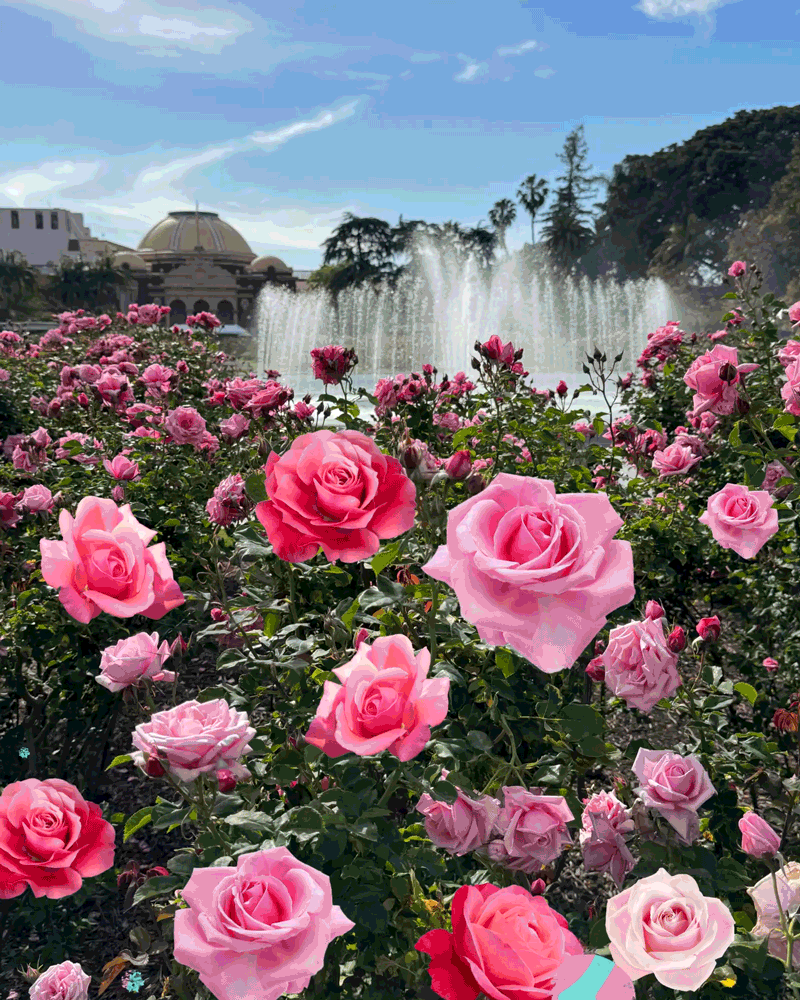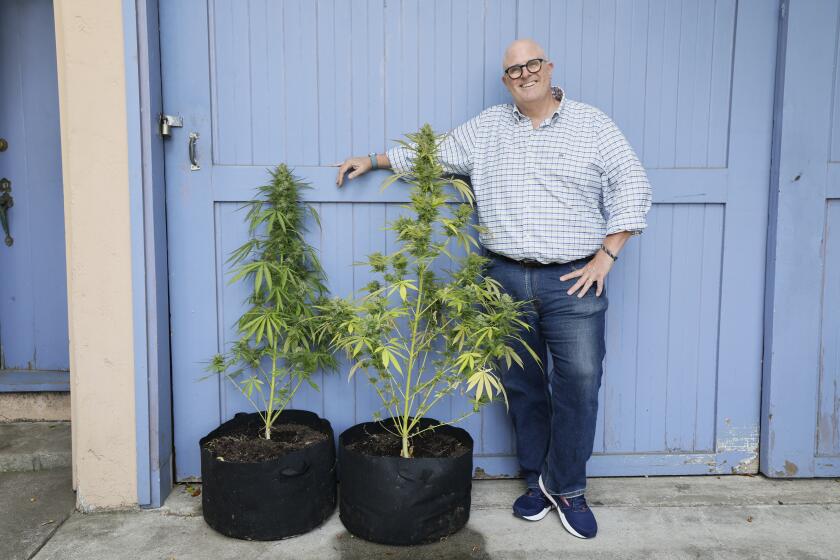A Rosy Future
Roses have a reputation. Often considered temperamental, disease-prone and labor-intensive, they’re ruled out by many gardeners. Which is a real shame.
Sometimes called the Queen of the Flower, the rose lives up to the title. In many ways, roses outperform most ornamental plants--especially in our mild climate, which is perfectly suited for them.
How many other flowering plants can claim to have an irresistible combination of elegance and strength, and produce bloom after fragrant bloom for months on end, year after year?
“Roses are one of the most satisfying plants you can grow and they’re not at all difficult to care for,” says Laurie Chaffin, co-owner of Pixie Treasures in Yorba Linda, which specializes in miniature roses.
“Roses are as easy or as hard as you want them to be,” she says. “At the nursery recently, I had a visitor from Scotland, who told me that in his country they refer to a rose garden as a lazy man’s garden.”
People are under the mistaken impression that roses are an inordinate amount of work and that they must be grown separately from other plants, says Mike Cady, horticulturist with Jackson & Perkins, a Medford, Ore.-based rose hybridizer that does mail order.
“You don’t need a rose garden for your roses,” Cady says. “They blend well with other plants and are very versatile. Besides hybrid teas, there are hedge and ground-cover roses. Climbers block unsightly views and provide privacy, and just about any rose can be grown in a container.”
The secret to growing roses that don’t monopolize your gardening time is to select disease-resistant, easier-to-care-for roses from the start.
So what constitutes a lower-maintenance rose?
“Two keys seem to be roses that bloom a lot and those that don’t mildew much,” says Lillian Biesiadecki, a consulting rosarian, past president of the Orange County Rose Society and an American Rose Society judge who grows hundreds of roses in her Newport Beach garden.
When rosarians talk about a high-quality rose, they say it has substance.
“Roses that have substance have a lot of sugar in their petals and as a result hold their flowers for a long time,” Biesiadecki says. “Sugar content varies from plant to plant and appears to be genetic. You can tell when a rose has a lot of substance by touching its petals, which will feel thick and almost waxy. If a plant doesn’t have a lot of substance, the flower petals are thin and blow off very quickly.”
While there are roses that are easier to care for than others, all roses need some care to thrive, Biesiadecki says. The following tips will help you grow roses with a minimum amount of trouble.
* Plant in the right location. Roses are sun lovers. Provide them with 4 to 6 hours of sun a day and you’ll be well on your way to success.
* Work from the ground up. Prepare your soil before planting and you’ll be rewarded with a healthy plant and lush blooms. Experts suggest amending with organic matter.
* Mulch. Mulch will save you a lot of work in the long run. Not only does it conserve water, it enhances and enriches the soil and helps eliminate weeds. Make sure that whatever you use is well-composted. Apply at least once, if not twice, a year.
* Fertilize. Roses produce a lot of flowers and are therefore heavy feeders. Organic fertilizers are a good choice because they help feed the soil. Time-released chemical fertilizers are a practical choice, as they generally last for 6 to 9 months. In addition to a chemical fertilizer, Biesiadecki also puts down alfalfa meal and Epsom salts around her roses twice a year, which she then covers with mulch. She occasionally adds iron, which enriches foliage and flower color.
* Prune. If you want them to flower, many roses, except for self-cleaning types (those that don’t need to be pruned for blooming), should be deadheaded throughout the year. This month, cut them down by one-third to one-half and strip off the leaves. This will force them into a dormant state, which will reinvigorate them and lead to a mass of blooms in the spring. Prune miniature roses back by one-third.
* Water regularly. Although roses can withstand some drought, they should never be allowed to go dry. The more regular the watering, says Biesiadecki, the more healthy the plants. Container-grown roses will need more water than their ground-grown counterparts. Consider using water-storing soil polymers, which will help ensure that the roses have access to water.
* Keep pests at bay. Washing roses down on both sides of the leaves in the morning hours will keep away rust and spider mites and wash off aphids.
* Consult the American Rose Society Web site at https://ars.org for answers to rose questions.
* For a Jackson & Perkins catalog, call (800) 292-4769 or visit the Web site at https://www.jacksonandperkins.com.
* Pixie Treasures is at 4121 Prospect Ave., Yorba Linda, (714) 993-6780.
* “Easy-Care Roses,” (Brooklyn Botanic Garden, Inc., 1996, $9.95) lists various low-maintenance old-garden roses. (718) 623-7280 or https://bbg.org.
(BEGIN TEXT OF INFOBOX / INFOGRAPHIC)
Classes Scheduled
The Orange County Rose Society will hold a rose growing seminar and rose pruning demonstration Jan. 22 and 23. The free event is co-sponsored by the city of Westminster and will run from 1 to 3 p.m. both days, rain or shine, at the Westminster Community Services Building, 8200 Westminster Blvd., east of Beach Boulevard, Westminster. There will be door prizes and a free booklet. Call (714) 895-2860 for more information.






